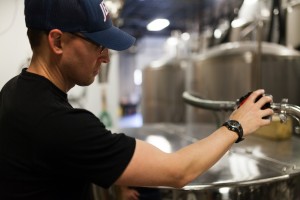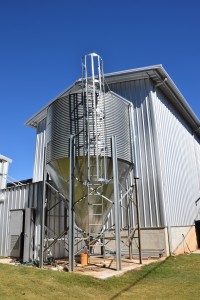The Connection Between Science and Beer
March 14, 2016 When startup breweries approach our team at Taco Mac looking to get their beers on tap in our restaurants, we typically ask one specific question first: do you have a lab?
When startup breweries approach our team at Taco Mac looking to get their beers on tap in our restaurants, we typically ask one specific question first: do you have a lab?
For the average consumer, finding the connection between beer and science might be a head scratcher. However, for the savvy brewer or beer connoisseur, science is an integral part of the brewing process.
Take Southern Brewing Company for example. The brewery, which is based in Athens, is focused on all things local. Southern Brewing Company even has a Science Club made up of more than 30 chemists, microbiologists and geneticists—all of whom gather on a monthly basis to analyze local yeast strains and how they affect beer. (You can read more about their process on My Athens.)
Any beer drinker can tell you how they like their beer, whether it’s a carbonated, hoppy IPA or a creamy stout on nitro. Consequently, any brewer could tell you that producing great beer requires attention to detail, largely because so many difficult-to-control scientific processes—such as boiling and fermentation—take place from start to finish.
Here are three important considerations that brewers keep in mind, all of which tie back to science:
- Temperature – Controlling temperatures along the way is crucial, especially in the fermentation phase of brewing. Letting your beer get too hot or too cold will throw off the brewing process.
- Oxygen – Depending on the type of beer that you’re brewing (especially if it is an ale vs. a lager), exposure to oxygen during the brewing process is critical. You’re either trying to avoid it at all costs, or trying to regulate it. Improper oxidation can ruin a batch of beer.
- Cleanliness – Brewing with contaminated equipment or in an unsanitary environment can expose your beer to unwanted bacteria or infections.
And science doesn’t have to end in the brewing process. How a beer is bottled or served from a tap also involves chemical reactions. Oftentimes, carbon dioxide is used to carbonate beers—either naturally or artificially. To create a creamier beer, beer bars can utilize nitrogen (you’ll see this marketed as “on nitro”) to displace some of the carbon dioxide, which results in this smoother mouth feel.
In the coming months, we’ll be talking to breweries and beer experts throughout Georgia who will share their thoughts on the important link between science and beer, as well as what they feel are crucial tips to consider when brewing. Stay tuned! In the meantime, be sure to stop by Taco Mac to try one of our scientifically crafted beers, like Creature Comforts’ Athena.






